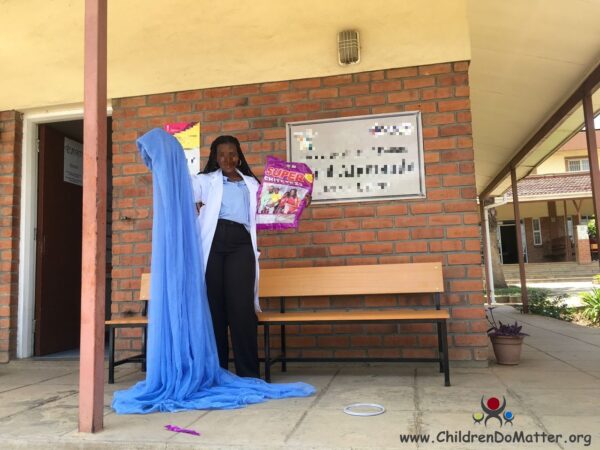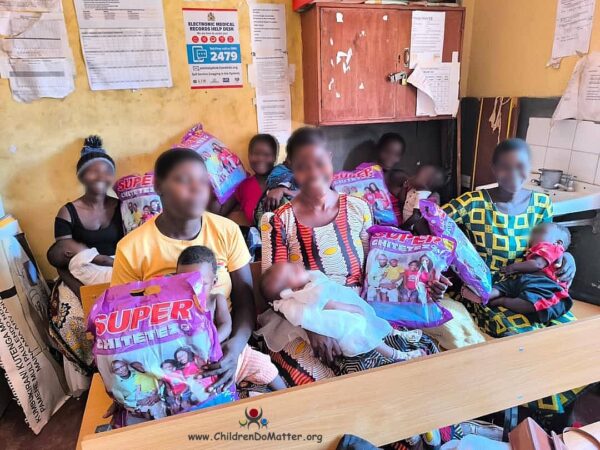The Family Health Services (FHS) formerly PSI/Malawi, a local organisation aimed at improving lives of Malawians, has reached the team at Children Do Matter with the generous offer to donate 600 Super Chitetezo mosquito bed nets for the prevention of malaria. A mosquito net for bed is made of polyester and treated with an insecticide spray that lasts 6-12 months. It provides an effective protection against mosquito bites.

Some of these long-lasting insecticide-treated bed nets are being assigned to our “The Green Lotus” orphanage and home in Blantyre. Poor households and maternity wards with vulnerable pregnant women and young children have received the remaining bedroom nets free of charge.

Malaria is a significant public health challenge in Malawi, a landlocked country located in southeastern Africa. This very serious life-threatening disease is endemic in more than 95% of Malawi territory. It is most prevalent in the southern shores of Lake Malawi and the central region of the country.
Female Anopheles mosquitoes can pass the Plasmodium parasites that are responsible of the malaria disease. After biting an infected person, a mosquito also becomes infected. When biting someone else, the parasite enters the person’s bloodstream and multiplies in the liver. Malaria also spreads by transfusion of blood from infected people or by the use of contaminated (dirty) needles or syringes.
- Health Impact: Malaria remains one of the leading causes of morbidity and mortality in Malawi, particularly among children under five years old and pregnant women. The country has a high prevalence of the disease, particularly in rural areas with limited access to healthcare
- Transmission: Various factors influence the spread of malaria in Malawi. Changes in climate patterns, geographical conditions can affect the transmission dynamics of malaria. Increased rainfall, stagnant water bodies, temperature fluctuations can lead to changes in mosquito breeding habits and malaria transmission rates
- Prevention: The Malawian government, along with various non-governmental organisations and international partners, has put in place Malaria control effort. These include awareness campaigns, improving access to healthcare services, increased vaccination, distribution of bed nets, indoor residual spraying, implementation of community education programs about preventive measures
- Treatment: Microscopy and a Rapid Diagnostic Test are alternate ways of quickly establishing the diagnosis of malaria. The first-line treatment for uncomplicated malaria in Malawi is the artemisinin-based combination therapy and the intermittent preventive treatment for pregnant women
- Research: Challenges in malaria control include drug resistance, limited access to healthcare in remote areas, and socio-economic factors that hinder prevention and treatment efforts. Ongoing research focuses on developing new malaria vaccines and improving existing control strategies. The new malaria vaccines, piloted in some regions, will provide hope for future preventive measures
Efforts to combat malaria in Malawi continue to evolve, focusing on integrated approaches that combine prevention, treatment, and education to reduce the disease’s impact on the population.
I work in the field of digital marketing and love to travel as much as possible. I have reached a stage of my life where I feel it’s time to ‘pay it forward’.




